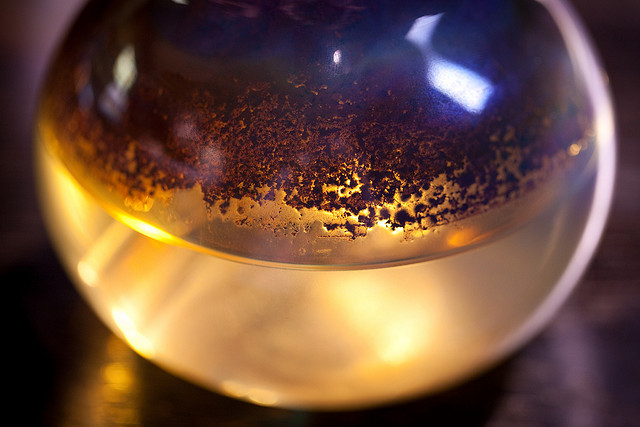The Chemistry of Water Bongs: Does Some THC Stay in the Water?
Bongs are a popular way to smoke cannabis, delivering an instant and powerful effect. But does some of the THC get lost as the smoke passes through the water?
According to research, this is possible. THC does not dissolve in water. However, analysis of smoke before and after passing through water shows that the amount of THC in the smoke still decreases.
This is based on a study conducted by the School of Medicine at the University of Athens in collaboration with the Organic Chemistry Laboratory at Utrecht State University. Experiments showed that water traps both soluble and insoluble smoke particles, including THC and other cannabinoids. However, the vast majority of THC molecules were able to pass through the water without issue.
Translator’s note: I read the research report at the provided link. The writing was extremely confusing and unclear. It seems that after passing through water, 87% of cannabinoids remain in the smoke, while 13% are trapped by the water. But I could be mistaken.
The study also found that unfiltered smoke caused catatonia in mice and suppressed their spontaneous motor activity. Smoke that had passed through water did not have this effect. This suggests that as smoke passes through water, it loses some substances that affect behavior.
The conclusion is clear: bong water does trap a small amount of THC, but the amount is so minor that you won’t notice the difference.
Weighing the Pros and Cons
Considering that bong hits are cool, deep, and don’t cause coughing, a small loss of THC is a fair trade-off.
But what about the other components in the smoke? Does the water filter out harmful substances?
A study by researchers from the University of Texas and the Harvard School of Public Health shows that water in a bong effectively removes acrolein and acetaldehyde from the smoke. Both of these substances are toxic to the protective cells in the lungs.
It’s important to note, however, that water is more effective at trapping cannabinoids than resins. As a result, the ratio of resins to THC in the smoke increases. Fortunately, this doesn’t mean you’re inhaling more resins when using a bong. Their amount also decreases—just not as much as the THC. But does this really matter when the percentage loss is so small? The comfort of smoking with a bong is hard to beat!



